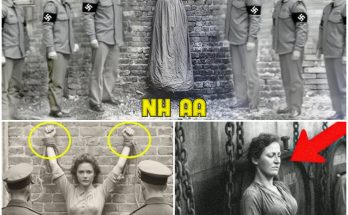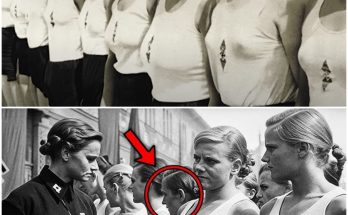Salt Lake City, Utah – The nation is still reeling from the tragic death of Charlie Kirk, the 31-year-old founder of Turning Point USA, who was fatally shot during a university event in Utah late Tuesday night. But the shock of the shooting was soon compounded by a disturbing discovery: a private audio recording found in Kirk’s office by his wife, Erika Ann Frantzve, in which he referenced “invisible enemies” and issued a cryptic warning about the future of the movement he dedicated his life to building.
The release of the recording has not only deepened the grief surrounding Kirk’s passing but has also ignited a firestorm of speculation, debate, and controversy across the United States.
The Fatal Night in Utah
According to police reports, the incident occurred shortly after Kirk took the stage at the University of Utah. Hundreds of students had gathered for a talk on free speech and political activism, part of a nationwide tour Kirk had embarked upon in recent months.
Witnesses described the horrifying moment when a lone assailant opened fire. “It happened so fast,” one student recounted. “One moment he was speaking with his usual energy, and the next there were gunshots and chaos.” Despite emergency medical efforts, Kirk was pronounced dead at the scene.
The suspect, who has not yet been publicly identified, was taken into custody. Authorities have launched a wide-ranging investigation, but officials have remained tight-lipped about motives or connections.
Erika’s Discovery
Back in Phoenix, at the headquarters of Turning Point USA, Kirk’s wife Erika Ann Frantzve was grappling with the devastating news when she uncovered something unexpected. Searching through her late husband’s private office, she came across a digital recorder tucked away in a desk drawer.
The device contained a single file, dated just days before his death. In the recording, Kirk’s voice is steady but heavy with emotion.
“I don’t know how long we have left to keep building,” he said. “The movement faces enemies that most can’t see. They are not just on the outside—they are invisible, operating in ways few will ever understand. If something happens to me, remember: this is bigger than one man. The fight cannot stop.”
For Erika, the message was both chilling and clarifying. “It was as if he knew,” she told reporters, her voice breaking. “Charlie wanted us to understand the challenges ahead, even if he couldn’t be here to face them.”
The Public Reaction
When the family decided to release the recording to the public, reactions were immediate and intense. Within hours, hashtags like #InvisibleEnemies and #CharlieKirkRecording were trending on social media.
Supporters hailed the recording as Kirk’s final call to arms, evidence of his foresight and determination. Many described it as a “prophecy” and a rallying cry to continue his mission.
Critics, however, urged caution, noting that the cryptic references could easily fuel conspiracy theories. “We must be careful not to romanticize paranoia,” said Dr. Elaine Porter, a political analyst. “The tragedy is already immense—turning it into a mystery risks overshadowing the real issues of violence and security.”
Still, the words “invisible enemies” echoed across talk shows, podcasts, and headlines. Commentators debated who—or what—Kirk was referring to, with theories ranging from ideological opponents to betrayal from within his own circles.

Leaders Respond
Political leaders on both sides of the aisle weighed in on the discovery. Former President Donald Trump, a close ally of Kirk’s, said the recording proved that Kirk was “fully aware of the forces lined up against him.” Trump called him “a patriot who saw the truth too clearly for his enemies to tolerate.”
President Joe Biden, while condemning the violence, called for restraint in interpreting the recording. “We must honor Charlie Kirk’s life without rushing to conclusions about what he feared,” Biden said. “Our focus should be on justice and on healing as a nation.”
Erika, meanwhile, insisted that sharing the recording was what her husband would have wanted. “Charlie believed in transparency,” she said. “Even in his last days, he wanted people to understand the gravity of what he was facing.”
Turning Point USA at a Crossroads
For Turning Point USA, Kirk’s death and the subsequent discovery have created a moment of reckoning. The organization, which has become a powerhouse of conservative youth activism, now faces the daunting task of moving forward without its founder.
In a statement, the group’s senior leadership pledged to honor Kirk’s legacy. “Charlie left us with a mission, and his words in the recording reaffirm that mission,” said Chief Operating Officer Tyler Bowyer. “We will not falter, and we will not let the invisible enemies win.”
Yet privately, insiders admit that questions loom large: Who might those “invisible enemies” be? Was Kirk speaking metaphorically, or did he have concrete knowledge of threats against him? And how will the movement evolve without his charismatic leadership?
A Nation Divided Over Meaning
The release of the recording has widened an already polarized national conversation. Supporters of Kirk view it as proof that he foresaw betrayal and danger. Detractors see it as a troubling glimpse into the mindset of a man under pressure.
“His words are open to interpretation,” said journalist Henry Lawson. “That’s why they resonate so powerfully—they can mean everything or nothing. But in the aftermath of his death, they take on an aura that transforms them into something larger than life.”
Vigils have been held across the country, with mourners often playing the recording aloud as a form of tribute. In Salt Lake City, students gathered outside the university auditorium, candles in hand, listening to Kirk’s final words through portable speakers. “It feels like he’s still talking to us,” one attendee said.
Legacy and Mystery
Charlie Kirk’s legacy is already being shaped as much by the recording as by his years of activism. To many, he will be remembered as a polarizing but passionate leader who gave voice to a generation of conservatives. To others, his final words will symbolize the dangers of divisive politics and the toll it can take on individuals at the center of the storm.
But regardless of interpretation, one fact remains: his sudden death and the discovery of the recording have ensured that Kirk’s story will not soon fade from the national memory.
“If something happens to me, remember: this is bigger than one man,” Kirk’s voice declared. Those words, echoing from beyond the grave, now serve as both a warning and a call to action for his supporters.
Looking Ahead
Investigators continue to probe the shooting, with authorities promising transparency. Meanwhile, Turning Point USA prepares for a massive memorial service in Phoenix, expected to draw thousands, including major political figures. Erika Ann Frantzve is said to be playing a central role in the planning, determined to ensure her husband’s final message is honored.
For now, the questions remain: Who were the “invisible enemies” Kirk feared? Was the recording a metaphor, a premonition, or something more concrete? And what does his death mean for the future of the movement he created?
As the nation searches for answers, one truth is inescapable: Charlie Kirk’s voice may have been silenced, but through the haunting words of his final recording, his influence endures—and so does the mystery surrounding his tragic end.





